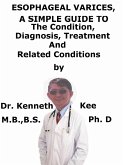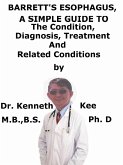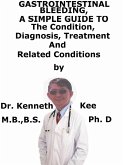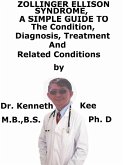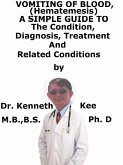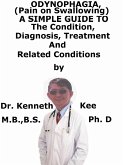A month ago I have a 2 year old patient who presents with severe abdominal pain and blood in the stools.
Because of the severe pain and the age I suspected Intussusception, a congenital condition in which the small intestine telescoped into its own wall.
He was referred to the pediatric surgeon for review.
A series of tests reviewed that he had Meckel Diverticulum, a pouch on the wall of the lower part of the small intestine that was causing bleeding.
A blood transfusion was given and the Meckel Diverticulum removed.
The Meckel diverticulum is a small pouch on the wall of the lower part of the small intestine that occurs at birth (congenital).
The diverticulum may contain tissues that are the same as that of the stomach or pancreas.
This is the vestigial remnant of the vitellointestinal duct.
It is the most frequent malformation of the gastrointestinal tract.
If present, it is sited in the distal ileum, normally within 100 cm of the ileocecal valve.
Causes
The Meckel diverticulum is tissue left over from when the baby's digestive tract was forming before birth.
A small number of people (1.2-2%) have a Meckel diverticulum.
Only a few have symptoms.
Symptoms
1.Pain in the abdomen that can be mild or severe
2.Blood in the stool
3.Nausea and vomiting
Symptoms often happen during the first few years of life.
They may not begin until adulthood.
Meckel diverticulum is a frequent incidental finding at laparotomy.
The large majority of those with Meckel diverticulum are asymptomatic
Symptoms occur when complications start:
Hemorrhage-25-50% of symptomatic patients, bleeding per rectum, mostly in children younger than 2 years
Intestinal obstruction-10-43% of symptomatic patients, abdominal pain
Diverticulitis- diarrhea, abdominal cramps and periumbilical tenderness
Perforation- occur spontaneously or from a fish bone or foreign body
Umbilical anomalies- fistulas, cysts, sinuses and fibrous bands
Neoplasm- very rare (0.5-5%)
Others- formation of stones and phytobezoar, vesicodiverticular fistulas and 'daughter diverticula'
Diagnosis
The patient may have these tests:
1.Hematocrit
2.Hemoglobin
3.Stool smear for invisible blood (stool occult blood test)
4.CT scan
5.Technetium scan (also called a Meckel scan)
Technetium-99m pertechnetate scintigraphy is the test of choice
Treatment
The patient may require surgery to remove the diverticulum if bleeding occurs.
The section of small intestine that comprises the diverticulum is removed.
The ends of the intestine are sutured back together.
Absolute indications for resection are complications such as:
1.Hemorrhage,
2.Diverticulitis,
3.Intestinal obstruction and
4.Umbilico-ileal fistulas
In asymptomatic individuals, advice of resection of a diverticulum found incidentally should be considered for those manifesting a higher risk of complication, such as:
1.Patients aged the patient younger than 40.
2.Diverticula longer than 2 cm.
3.Diverticula with narrow necks.
4.Diverticula with fibrous bands.
5.Suspected ectopic gastric tissue.
6.Inflamed, thickened diverticula.
For a symptomatic Meckel diverticulum, laparoscopic resection has been proven to be safer, less invasive and less costly than laparotomy.
Complications of surgery are documented in 1-8% of asymptomatic patients
1. Ileus,
2. Suture line or intestinal anastomotic leak,
3. Intra-abdominal abscess or
4. Pulmonary embolism.
Late postoperative complications are intestinal adhesions resulting in small bowel blockage.
The patient may require taking iron supplements for treatment of anemia.
The patient may require a blood transfusion if the patient has lost a lot of blood.
TABLE OF CONT...
Dieser Download kann aus rechtlichen Gründen nur mit Rechnungsadresse in A, B, CY, CZ, D, DK, EW, E, FIN, F, GR, H, IRL, I, LT, L, LR, M, NL, PL, P, R, S, SLO, SK ausgeliefert werden.



